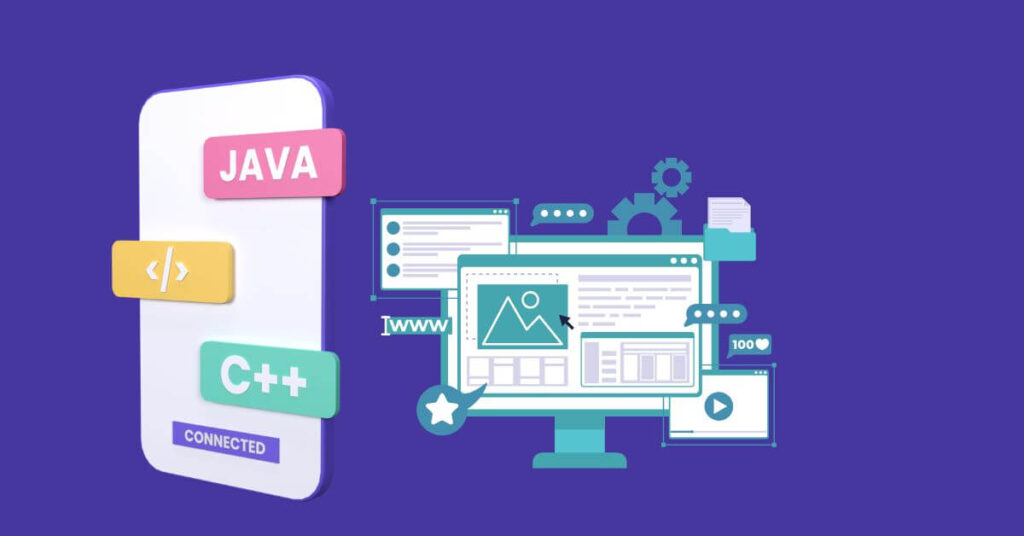Getting Started With Web Development in 2023: What You Need To Know To Get Started – If you’ve ever wanted to get into bigcommerce developer but weren’t sure where to start, then this article is for you! We’ll go over the basics of what you need to know to build a website from scratch, as well as the tools and technologies that are essential for successful web development. So read on and get ready to jumpstart your journey into the world of web development!
Table of Contents
What is Web Development?
Web development is the process of creating a website or web application. It involves planning, designing, coding, and testing. Web development can be done using different programming languages and frameworks. A web development agency can also help you with all aspects of your website or web application project, from initial planning to launch and beyond. An agency will have a team of experienced professionals who can work together to create a high-quality website or web application.
Web development is a process that can be broken down into four main stages:
Planning: This stage involves deciding on the goals of the website or web application, as well as its target audience. It also includes figuring out what content will be included on the site.
Designing: In this stage, the look and feel of the site is created. This includes choosing colors, fonts, and layout. The goal is to create a visually appealing site that is easy to navigate.
Coding: This stage is where the actual code for the website or web application is written. Different programming languages can be used for this purpose.
Testing: Once the code has been written, it needs to be tested to make sure it works properly. This includes checking for bugs and ensuring that all the features work as intended.
Benefits of Learning Web Development
Web development is a growing field with many job opportunities. Learning web development can help you get a job in this field, or help you start your own web development business.
There are many benefits to learning web development. With the right skills, you can get a well-paying job in this growing field. You can also use your skills to start your own web development business.
If you are thinking about getting into web development, there are a few things you should know. First, you need to have basic computer skills. You should also be able to read and write code. Finally, it is helpful to have some experience with design and user experience (UX).
If you have the right skills, learning web development can be a great way to get started in this growing field.
Tools & Resources You Need To Get Started
There are a few tools and resources you need to get started with web development. Firstly, you need a code editor. This is a program that allows you to write and edit code. Some popular code editors include Sublime Text, Atom, and Visual Studio Code. Secondly, you need a web browser. This is the program that you use to view websites.
The most popular web browsers are Google Chrome, Mozilla Firefox, and Safari. Finally, you need a way to test your code locally. This means running a web server on your computer so that you can view your website offline. There are many ways to do this, but one popular way is to use the MAMP software.
With these tools and resources, you should be able to get started with web development!
HTML and CSS Basics
HTML and CSS are the two most important languages for developing websites. HTML is used to structure content on a web page, while CSS is used to style that content. In order to create a website, you will need to know both of these languages.
If you’re just getting started with web development, there are a few things you should know about HTML and CSS. First, HTML is short for Hypertext Markup Language. This language is used to create the structure of a web page. Secondly, CSS stands for Cascading Style Sheets. This language is used to style the content on a web page.
Both HTML and CSS are easy to learn, but it takes time and practice to become proficient in them. There are plenty of resources available online that can help you get started with learning these languages. Once you have a basic understanding of HTML and CSS, you can begin creating your own websites!
JavaScript and Frameworks
JavaScript is a programming language that is used to create interactive web applications. It is the most popular programming language on the web and is used by more than 90% of all websites.
There are many different frameworks available for JavaScript, each with their own benefits and drawbacks. The most popular frameworks are AngularJS, ReactJS, and VueJS.
AngularJS is a full-fledged framework that offers two-way data binding and a complete suite of tools for creating rich web applications. However, it can be difficult to learn and use.
Building a web app with ReactJS is a great way to create a fast, responsive, and modern user interface. ReactJS is a lightweight framework that focuses on giving developers the freedom to choose how they want to structure their code. It does not have as many features as AngularJS, but it is easier to learn and use.
VueJS is a newer framework that combines the best features of both AngularJS and ReactJS. It is easy to use and has a small learning curve.
Read Also: What Factors to Consider While Choosing Your First Software Development Job?
How to outsource Python development without a hitch: an ultimate guide
How To Troubleshoot and Debug Your Code
If you’re just getting started with web development, you might be wondering how to troubleshoot and debug your code. Here are some tips to help you get started:
1. Use a code editor or IDE that has built-in debugging tools. This can save you a lot of time and frustration when trying to debug your code.
2. Try running your code in a separate browser or environment to isolate the problem. This can help you narrow down where the problem is occurring.
3. Use breakpoints to stop your code at specific points, so you can examine the state of your variables and see what’s happening.
4. Use the console to log information about what’s happening in your code. This can be really helpful in understanding what’s going wrong and where.
5. Google your errors! Chances are, someone else has run into the same problem and there’s already a solution out there.
Deploying Your Website
Assuming you have a website built and ready to be deployed, there are a few key things you need to know in order to get it up and running.
To start, you’ll need to choose a web hosting provider. This is a company that will store your website’s files on their servers and make them accessible to users on the internet. There are many different options available, so be sure to do your research to find one that best suits your needs. Once you’ve chosen a provider, you’ll need to set up an account with them and purchase hosting services.
Next, you’ll need to transfer your website’s files to the host server. This can typically be done using FTP (File Transfer Protocol). Once the files are transferred, your site should be accessible online.
If you’re not planning on managing the server yourself, you’ll also need to choose a web hosting management company. This is a company that will handle tasks like server maintenance, updates, and security for you.
Finally, once everything is set up and working properly, be sure to promote your site! Spread the word through social media, online ads, or good old-fashioned word of mouth.
Alternatives to Web Development
There are a few different options for becoming a web developer. self-study, bootcamps, and college degrees are all popular routes.
If you want to teach yourself web development, there are plenty of resources out there. FreeCodeCamp and Codecademy are two popular websites that offer interactive exercises to teach you how to code. There are also many books available on the subject.
Bootcamps are an intense way to learn web development in a short amount of time. They typically last around 12 weeks and cover everything from HTML to CSS to JavaScript. Bootcamps can be expensive, but they often include job placement assistance upon graduation.
Getting a college degree in web development is another option. Many colleges now offer programs specifically in web development or related fields such as computer science. A degree can give you a more well-rounded education and may make it easier to find a job after graduation.
Conclusion
Web development is not a new field, but it’s one that is constantly evolving. Knowing the basics of web development will help you start your career on the right foot and give you the confidence to learn more and stay up-to-date with trends.
From learning HTML and CSS to building a portfolio website, there are many steps involved in getting started with web development. With a good understanding of these core concepts, you can become a successful web developer in no time!

Pradeep Sharma is a author the mind behind Techjustify, where I craft insightful blogs on technology, digital tools, gaming, AI, and beyond. With years of experience in digital marketing and a passion for tech innovation, I aim to simplify complex topics for readers worldwide.
My mission is to empower individuals with practical knowledge and up-to-date insights, helping them make informed decisions in the ever-evolving digital landscape.


